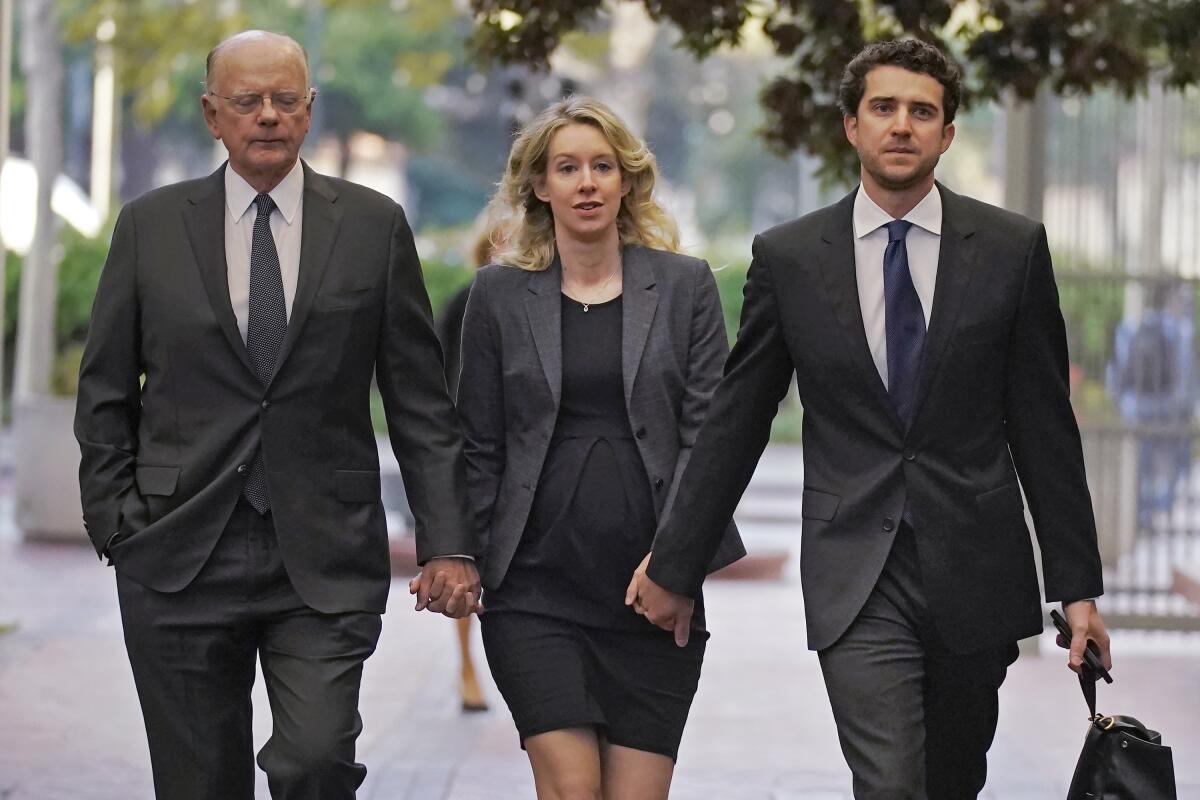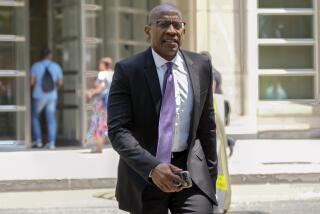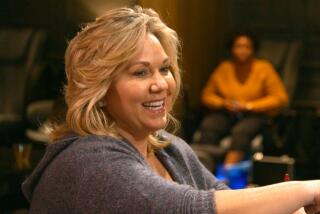Elizabeth Holmes’ fraud conviction upheld by appeals court

- Share via
Elizabeth Holmes lost her last-ditch effort to overturn her 2022 fraud conviction when a federal appeals court on Monday upheld the judgment against the disgraced Theranos Inc. founder.
A three-judge panel for the U.S. Court of Appeals for the 9th Circuit in San Francisco also upheld the conviction of her former business and romantic partner Ramesh “Sunny” Balwani.
The ruling bookends a years-long Silicon Valley drama over the blood testing startup that took the industry by storm with Holmes’ celebrity appeal and $9-billion valuation. The company collapsed after its testing technology was exposed as a failure, a scandal that inspired books, films and podcasts.
Holmes was convicted in 2022 on four counts of wire fraud relating to false claims she made to investors after a jury trial in the U.S. District Court for the Northern District of California. She is serving an 11-year sentence in a minimum security prison in Texas.
The case has resurfaced in recent weeks in the lead-up to the trial of another young tech founder, Charlie Javice, who faces charges she defrauded JPMorgan Chase & Co. into acquiring her startup. Earlier this month, in a court filing prosecutors disclosed text messages in which Javice criticized Holmes’ conviction at the time as “ridiculous” and cast blame on Theranos Inc. investors instead.
“Investors should be blamed on letting a 19 year old go rogue,” she wrote in one text. Holmes was 19 when she founded Theranos in 2003.
In a subsequent text, Javice suggested Holmes’ “sophisticated” investors were at fault. Javice’s lawyers have at times used similar language about JPMorgan.
“How could one of the most powerful and sophisticated companies in the world fall for such an alleged scam?” her lawyers said in a filing responding to a civil suit JPMorgan brought against her. The bank sued Javice in December 2022, shortly after firing her for the alleged fraud. Criminal charges followed in April 2023.
Holmes asked the 9th Circuit to toss out her conviction and grant a new trial, arguing that prosecutors presented key testimony during the four-month trial from Theranos’ final lab director that was “infected with error.”
Prosecutors used the lab director, Kingshuk Das, as a scientific expert on Theranos’ blood testing device called the Edison, but Holmes’ attorneys argued that he was never properly vetted by the judge as an expert.
The Justice Department countered that Das wasn’t providing an expert opinion, but rather testifying about what he saw at Theranos while he worked there and what he told Holmes at the time.
And even if Holmes had won her argument, she hadn’t challenged volumes of other evidence that pointed to her guilt, including her lies about Theranos’ financial health, work with the military, and partnership with Walgreens Co., prosecutors argued.
Poritz writes for Bloomberg. Bloomberg reporter Jazper Lu contributed to this report.










